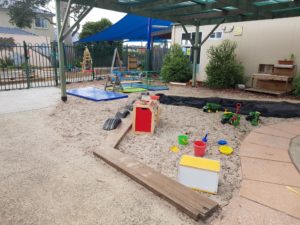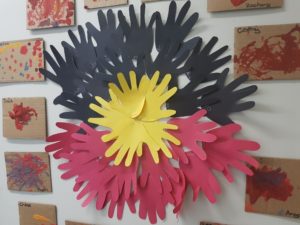What to bring:
|
 |
| Note: Please ensure all items are clearly labelled with your child’s name.
Children’s water bottles must be taken home at the end of each day and bought back the next day your child is in. Please put children in supportive shoes to avoid accident. No thongs or crocs. |
|
 |
Signs your child might be ready for toilet training –
Please keep in mind that toilet training can be a long process causing some stress at times, but given the time and encouragement all children will master this new skill at their individual pace. It is recommended that all children are toilet trained before moving up to the Rosella room due to there being no nappy changing facilities in the Rosella room. Parents need to be aware that there is a change in staff ratios in this room to 1 educator to 11 children. |
What to expect:
By 2 years –
By 2½ years –
|
By 3 years –
|
Daily Routine:
| The routine is flexible and caters for the children’s individual needs. Nappies are regularly changed throughout the day. Water is available for children throughout the day. Children are supervised at all times however accidents do occur from time to time. Every effort is taken to ensure your child is nurtured and cared for when this occurs. |
| 7:00am |
|
12:15 – 2:00pm |
|
| 7:30am |
|
2:00 – 3:00pm |
|
| 9:00am |
|
2:30pm |
|
| 9:50am |
|
3:15pm |
|
| 10:00 – 11:00am |
|
4:00 – 4:30pm |
|
| 11:00 – 11:10am |
|
4:45pm |
|
| 11:15am |
|
5:30pm |
|
| 11:45am – 12:15pm |
|
6:00pm |
|
